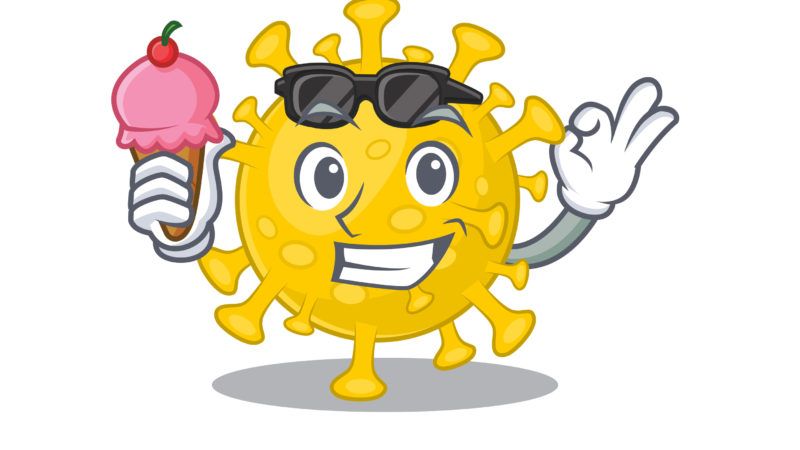Coronavirus Epidemic May Be Slowed by Warm and Humid Weather
The U.S. may get a respite from COVID-19 this summer.

Will the coronavirus that causes COVID-19 recede as the weather warms up, as flu viruses often do? Maybe so, according to a preliminary study by Chinese researchers. That would be terrific news.
Basically, the researchers analyzed how the epidemic evolved in various Chinese cities taking into account the weather in each. They also compared how the virus proliferated in countries with relatively lower seasonal air temperature and lower humidity (e.g., Korea, Japan, and Iran), which experienced more severe outbreaks with its spread in warmer and more humid countries (e.g., Singapore, Malaysia, and Thailand), where the outbreaks have been more limited.
In cold dry weather the basic reproduction number (R) of the new coronavirus is somewhere between 2 and 3—that is, each infected person passes along the virus to an average of 2 to 3 other people. Once they've crunched the data, the researchers find that a one degree Celsius increase in temperature and one percent increase in relative humidity lower the R value by 0.0383 and 0.0224, respectively.
Let's take the average climate of a randomly chosen American city—say, Washington, D.C. In March, the average high temperature is 56 degrees Fahrenheit (13.3 degrees C), with a relative humidity of 58 percent. In August, the average high temperature is 87 degrees Fahrenheit (30.6 degrees C) and humidity averages 71 percent. Assuming optimistically an R of 2, that would yield an August R of 1.047. In this scenario, rising summer heat and humidity would cut the R in half and significantly slow down the course of the epidemic.
The beneficial effects of summer, combined with conscientiously practiced mitigation measures such as social distancing and case isolation that flatten the epidemic's curve of infections, could drive R could below 1, causing the number of new cases to decline. If the new coronavirus turns out to be seasonal, the denizens of D.C. (and most folks living in the rest of the country) will get a respite from COVID-19 this summer.
If these findings prove happily true, expect our political leaders to take full credit for the relief that warmer weather will afford us. But don't forget the House of Stark motto in The Game of Thrones: "Winter is coming." The second winter wave of the 1918 Spanish flu was far more deadly than the original outbreak.
Nevertheless, a dog days lull in the epidemic would provide a breathing spell during which our health care system could substantially beef up treatment and mitigation efforts. It might even allow researchers enough time to discover and deploy effective pharmaceutical therapies for the disease.


Show Comments (127)